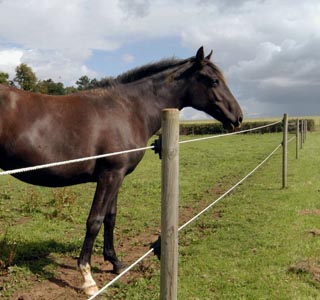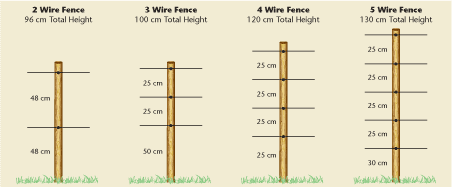
Electric fence is ideal for horses because it: 
is safer than traditional fencing
works effectively
can prevent cribbing and wear on the fence
is less expensive
than traditional fencing
is simple to install and maintain
is
easy to electrify an existing fence
Horses are easy to control with electric fencing. They are intelligent animals
and quickly learn to respect an electric fence. In addition, horses have thin
hides and are usually shod. If shod, the metal horse shoes make an excellent
earth connection. A shod, well-groomed horse will feel a more intense shock than
a long haired horse without steel shoes.
Horses tend to use traditional
fences as scratching posts, causing the fence to weaken or sag over time. They
may also fall into the habit of "cribbing" or chewing fences. An electric fence
prevents both of these behaviors, thus protecting the horse from harm and
prolonging the life of the fence.
If a horse is spooked and runs through
traditional wire or wooden fencing, injury is more likely to occur than with an
electric fence made of poly tape, wire or rope.
To safely contain
horses, you need an energiser that maintains a minimum of 3,000 volts up to the
end of the fence line. On very short fences, up to 200 yards long, an energiser
of 0.05 Joules would be adequate for subdivision. Voltage levels and therefore
the shock are affected by vegetation on the fence line, length of fence and type
of poly tape or rope.
Wire Spacing Guide

 川公网安备51082402000210号
川公网安备51082402000210号